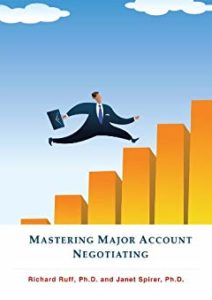A new medical device salesperson emailed us last week interested in one-on-one coaching. We talked and learned that he wasn’t interested in working on sales skills, sales strategy, or even sales presentations. Fortunately, the salesperson had a sales manager who was helping in those areas.
What he was interested in was this: How should I be managing my time? He was researching prospects, reviewing his accounts (without a CRM system!), using Excel spreadsheets. Of course, he was running out of “time and tape.” This is a common problem from both a sales effectiveness viewpoint and a work-life balance one, as well.
This rep is voicing an increasingly important problem: Time management has moved to the front burner and is an issue that needs more attention The problem as we see it: In too many companies sales reps spend too little time selling and the time they do spend is not well managed.
One part of the solution to this dilemma is – better technology, better marketing and better training.
1. Better technology.
There’s good news in technology improvements. Great apps and software systems have grown exponentially in the last several years. Apps like Charlie and SweetSpot are helping sales reps with sales calls and new CRM systems like Pipeliner CRM are light years ahead of the traditional systems when it comes to producing instant reports and organizing contact and account information.
2. Better marketing.
Salespeople are now expected to be subject matter experts on a customer’s industry, organization, business needs, and markets. The information they need to know is different at each stage of the sales cycle. At each step reps need their own understanding and competency, but they also need to be able to educate the customer. No matter how great the technology, no salesperson can do this without help from marketing. The amount and quality of information required means that the age of content marketing is here to stay!
3. Better training.
As the customer’s expectations (about the role of the salesperson) shifts from being a product facilitator to a trusted advisor, sales training programs have to keep pace. Two areas stand out:
Second-Level Product Knowledge
Second-level product knowledge goes beyond features and functions. It means that you have the capacity to convey how your products or services can solve the customer’s business problems. For example: Do you reduce risk, generate revenue and reduce cost?
Skill Sets
What skill sets does a salesperson need? For example: business acumen, adaptive thinking, and data retrieval and interpretation skills.
New Mindset
We recently came across an interesting Forbes article about best practices for corporate leaders to “get things done faster.” We think the ideas in the article will help sales reps handle their time management challenges.
-
Be innovative. The status quo may not be most efficient. Assess whether the answer is more about doing something different rather than simply improving what you’re doing.
-
Be bold. Don’t waste your time worrying or considering endless choices. Consider carefully, then make a decision and stand by it.
-
Go the extra mile. Focus on stretch goals… it’s likely that you can accomplish more than you think.
-
Leverage resources. Team selling is increasingly more prevalent in B2B sales given the rise in customer expectations. Get more effective and efficient at meeting these expectations by leveraging the expertise of technical specialists and other support personnel.
-
Understand the customer’s alternatives. Be up to date on your competition and understand how their products and services compare to what the customer needs. Your sales strategy will be more refined, and you’ll be more likely to get things right the first time.
-
Be diligent. Salespeople who take initiative end up getting more done in a shorter period of time.
Today companies in a wide variety of industries such as technology and healthcare are going through disruptive changes. When companies change how they buy – sellers need to change how they sell. In these times a new set of winners and losers will emerge. Some companies will be among the former and some will join the latter group because they wait too long and do too long about adjusting to the changes.
Market leading companies are constantly examining what skills are needed in the new market reality – we would suggest that time management and the tools to make it happen are an under-emphasized piece of the puzzle.













